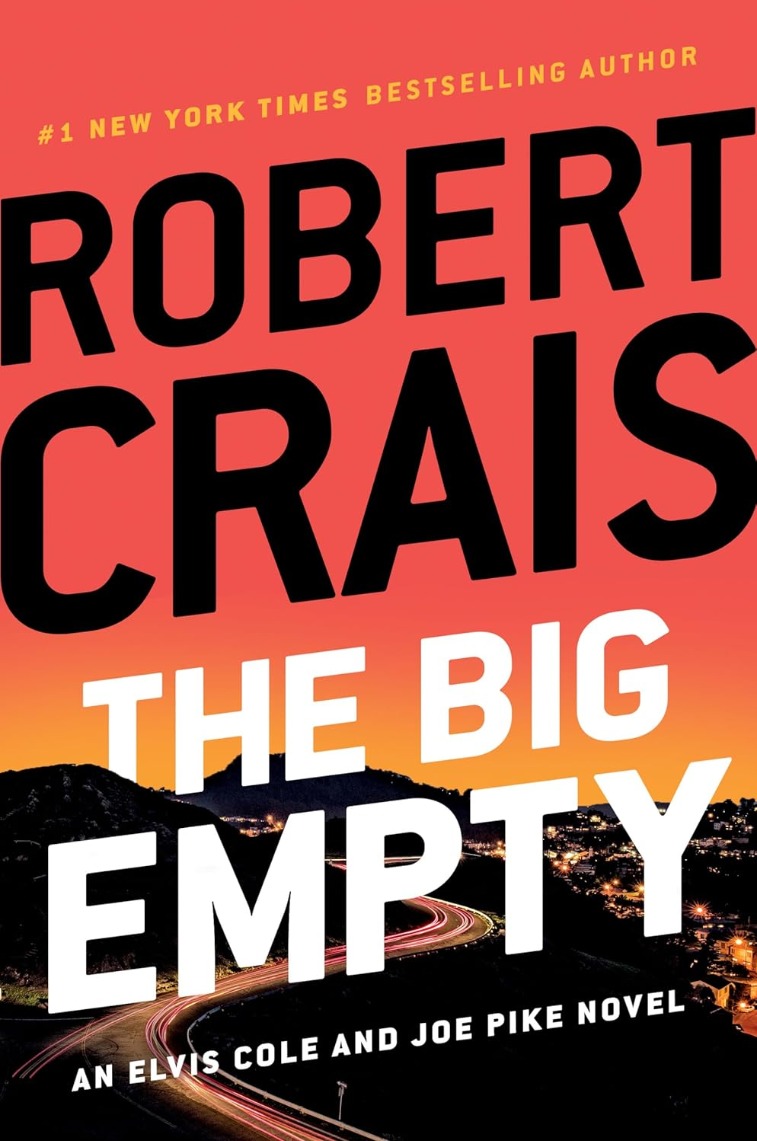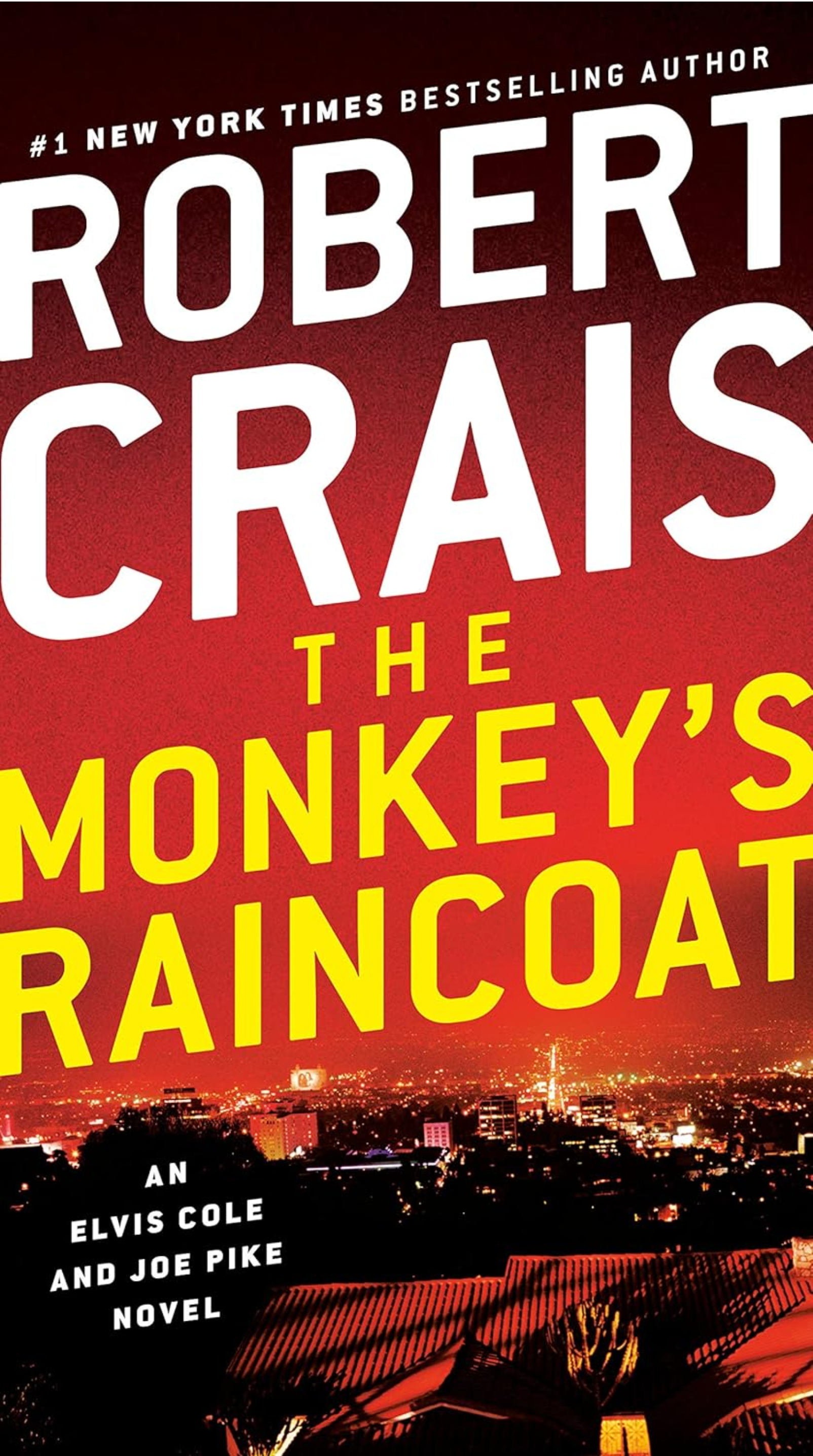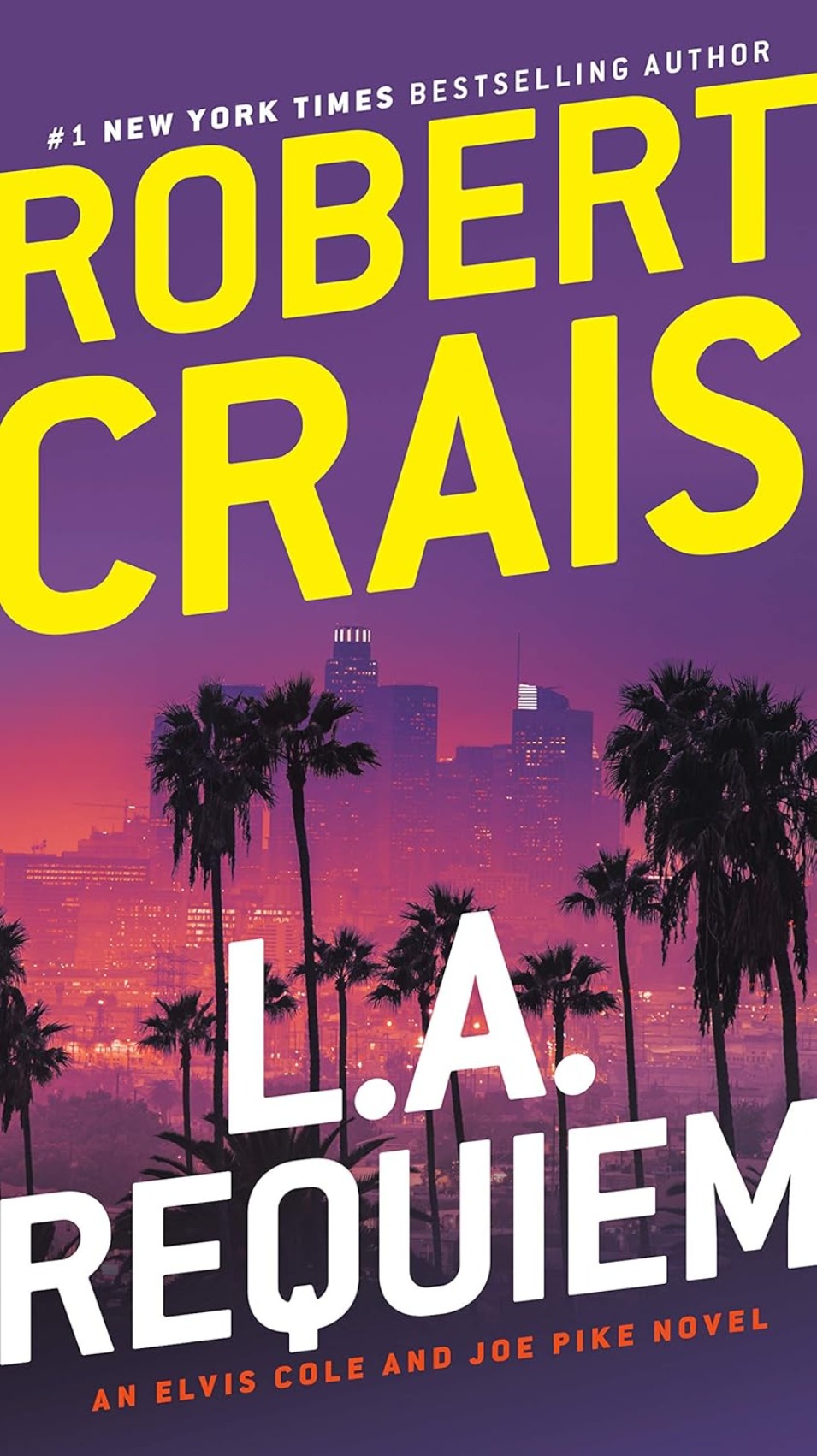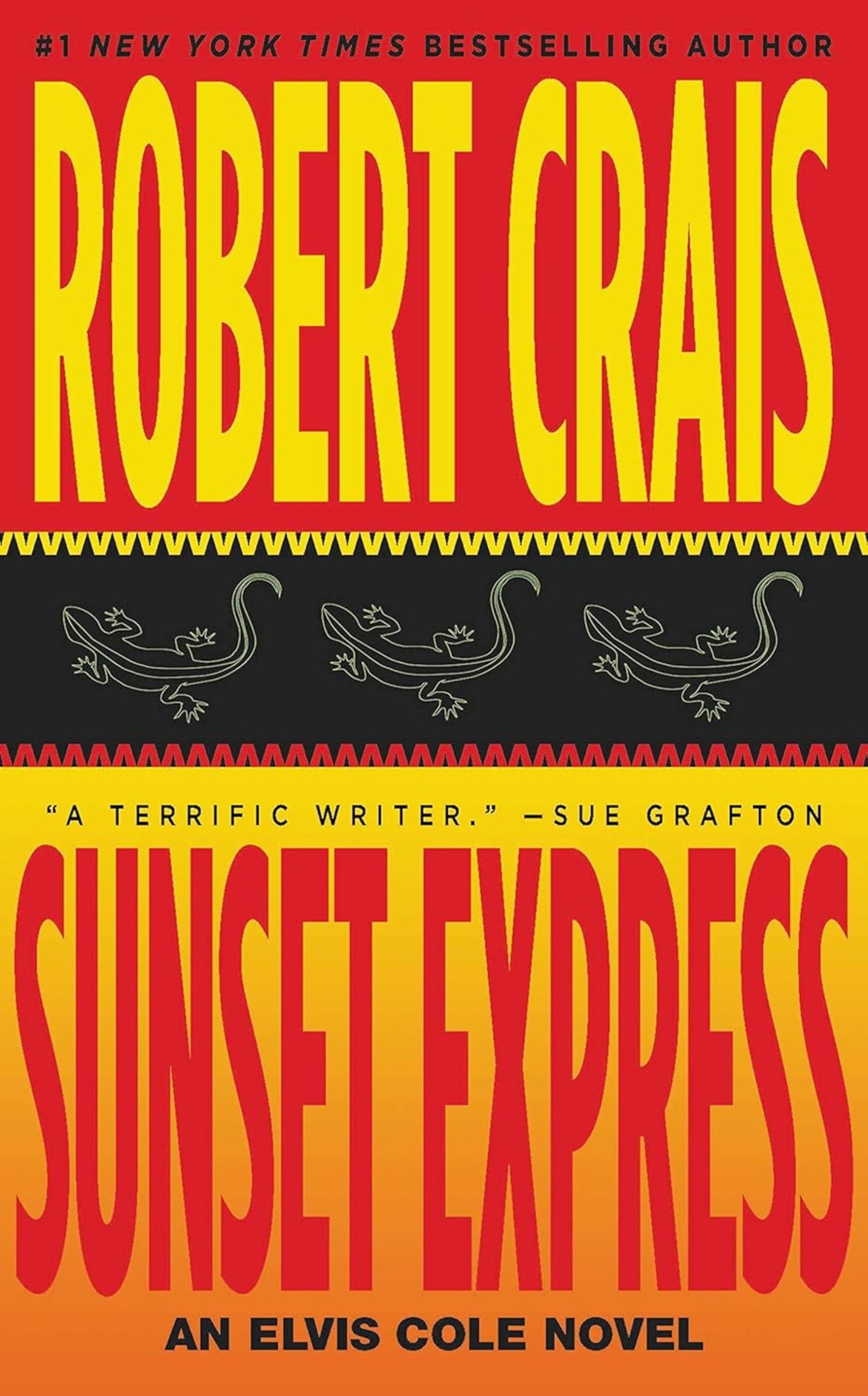Every year, some 600,000 persons go missing in the United States, about one-third of them adults. Although many of these people left their homes and lives voluntarily for various reasons, the possibility of foul play has provided endless grist mystery writers and true crime podcasts. Two popular network TV crime dramas, Found and Tracker, focus almost exclusively on missing persons cases. One of our best mystery writers, Robert Crais, now turns his attention to a case of a man missing for ten years in his new Elvis Cole and Joe Pike novel, The Big Empty. While I’m accustomed to surprise twists in books like this, The Big Empty surprised me with its power, skillful writing, and a healthy dose of neo-noir.
In The Big Empty, Cole is hired by Traci Beller, a 23-year-old social media star, to find her missing father, Thomas. He was a loving father whom Traci adored. Thomas owned his own heating and air conditioning repair business and disappeared after completing a day’s worth of routine maintenance calls. After his last stop, he called to tell his wife he was on the way home but was concerned about traffic. Neither he nor his van was ever seen again. Traci had hired another investigator to look into
the case five years earlier, but the first PI found nothing. Now, with the tenth anniversary of Thomas’s disappearance coming up, Traci wants to try once again before putting the matter to rest.
Unlike the previous investigator, Cole traces Thomas to a fast-food restaurant where the missing man stopped before going… somewhere. He also locates Lori Chance, a former employee at the restaurant who’s now a liquor store clerk. Cole gets additional information from her, but he also gets the attention of several unsavory characters. They deliver the customary obligatory warnings to Cole about nosing around where he’s not wanted. Later, they deliver a more personal message in a nighttime brawl that leaves Cole badly beaten and several of them the worse for wear as well. Cole is able to contact Joe Pike, who gets help and enters the case.
No one who has ever read a crime novel will be surprised to learn that Thomas’s disappearance is linked to some sinister goings on, as Cole eventually discovers. As I read The Big Empty, I kept envisioning various scenarios that explained Thomas’s disappearance and the appearance of the various shady characters in the book. However, when I finally learned the truth, I was stunned. The revelation, which occurs a few chapters before the book’s end, changes the entire tenor of the story and makes it a far more powerful drama. I won’t say any more because I don’t want to spoil any reader’s experience, but the actual ending makes the book far better than any of the scenarios I imagined.
Most of The Big Empty is narrated by Elvis Cole. He’s witty and observant, but more upbeat and less cynical than many private investigators in crime novels. His moral code and tendency to stick up for people are evident on multiple occasions. A good running joke in the book has Lori Chance reminding Cole several times that she’s available for a date, an offer he never takes her up on. When Cole is laid up in the hospital, the author shifts the point of view to Joe Pike, who is more direct. What’s most apparent in the book from that point on is the mutual friendship and respect the two men have for each other.
I also enjoyed the subplot involving Traci Beller. She’s an average girl with a knack for cooking who struck it big with a highly popular website, “The Baker Next Door,” and her daily baking videos. She’s got two less likable members of her entourage, a personal assistant and a controlling business manager, Kevin, who is more interested in protecting the brand than caring for Traci as a person. The author could easily have expanded on that dynamic, as well as Cole’s interactions with Kevin, without diluting the book’s attraction for readers.
The author also introduces another subplot in The Big Empty that isn’t as effective. Besides the chapters told from Pike’s perspective, the author labels a few chapters: “The Kill Car.” These chapters are told from the point of view of the mysterious driver of a nondescript vehicle who follows Cole for much of the book. Readers will probably try to guess who the driver is and how they fit in with the book’s other characters. These chapters are trite and unnecessary; the book reads better without them. Worse, the driver occasionally talks to their car, who they treat as their best friend and confidante. These conversations take the Kill Car chapters from annoying to silly.
The Big Empty was my first experience with Elvis Cole and Joe Pike, but I had no difficulty picking up the characters and their interactions. The author also did an excellent job of establishing the secondary characters. Thanks to a great revelation, the book morphed smoothly from a typical private eye novel to something considerably more powerful. The “Kill Car” subplot and chapters were a disappointment but one that the author easily made up for in the rest of the book. The Big Empty is full of entertainment for crime novel enthusiasts.
NOTE: The publisher graciously provided me with a copy of this book through NetGalley. However, the decision to review the book and the contents of this review are entirely my own.
In this clip, author Robert Crais discusses The Big Empty with Allison Brennan of the Authors on the Air Podcast:
Read other reviews of The Big Empty:
Robert Crais is the author of the best-selling Elvis Cole & Joe Pike novels. A native of Louisiana, he purchased a secondhand paperback of Raymond Chandler’s The Little Sister when he was fifteen, which inspired his lifelong love of writing, Los Angeles, and the literature of crime fiction. Other literary influences include Dashiell Hammett, Ernest Hemingway, Robert B. Parker, and John Steinbeck.
In the mid-80s, Crais resigned from a position as a contract writer and television producer to become a novelist. His first Elvis Cole novel, The Monkey’s Raincoat, incorporated elements of his own life as the basis of the story. The book won the Anthony and Macavity Awards and was nominated for the Edgar Award. It has since been selected as one of the 100 Favorite Mysteries of the Century by the Independent Mystery Booksellers Association. Although Crais conceived of the novel as a stand-alone, he realized he had created an ideal character Elvis Cole’s readership and fan base grew with each new book, then skyrocketed in 1999 upon the publication of L. A. Requiem, which was a New York Times and Los Angeles Times bestseller.
Crais followed with his first non-series novel, Demolition Angel, which was published in 2000 and featured former Los Angeles Police Department Bomb Technician Carol Starkey. Starkey has since become a leading character in the Elvis Cole series. In 2001, Crais published his second non-series novel, Hostage, which was named a Notable Book of the Year by the New York Times and was a world-wide bestseller. Additionally, the editors of Amazon.com selected Hostage as the #1 thriller of the year. A film adaptation of Hostage was released in 2005, starring Bruce Willis.
Header Photo: "Riot Radio" by Arielle Calderon / Flickr / CC By / Cropped
Silver Screen Video Banner Photos: pedrojperez / Morguefile; wintersixfour / Morguefile
Join Button: "Film Element" by Stockphotosforfree
Twitter Icon: "Twitter Icon" by Freepik
Facebook Icon: "Facebook Icon" by Freepik
LinkedIn Icon: "LinkedIn Icon" by Fathema Khanom / Freepik
Goodreads Icon: "Letter G Icon" by arnikahossain / Freepik
Certain images on this site appear courtesy of Amazon.com and other sponsors of Silver Screen Videos for the purpose of advertising products on those sites. Silver Screen Videos earns commissions from purchases on those sites.
© 2025 Steven R. Silver. All rights reserved.







